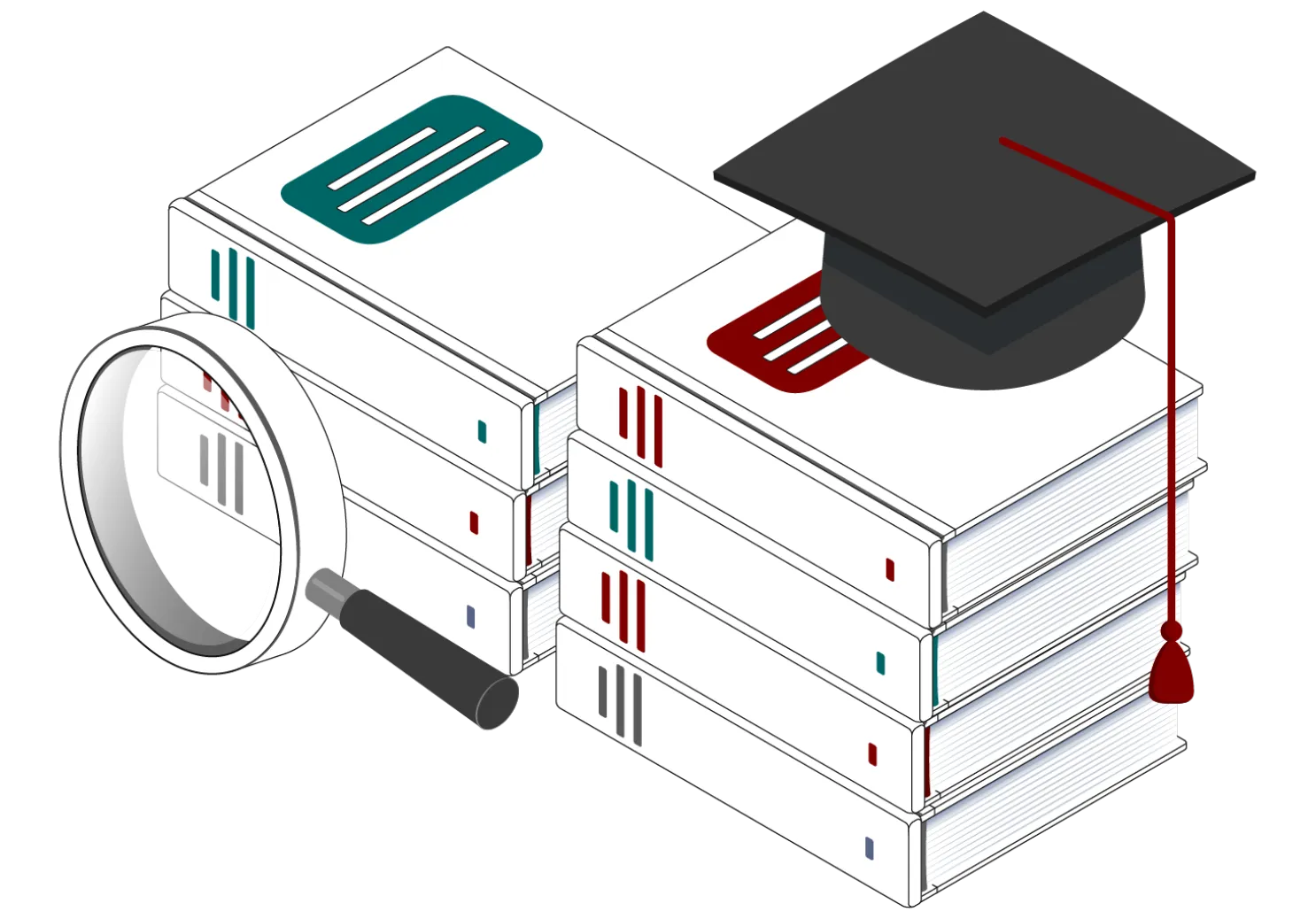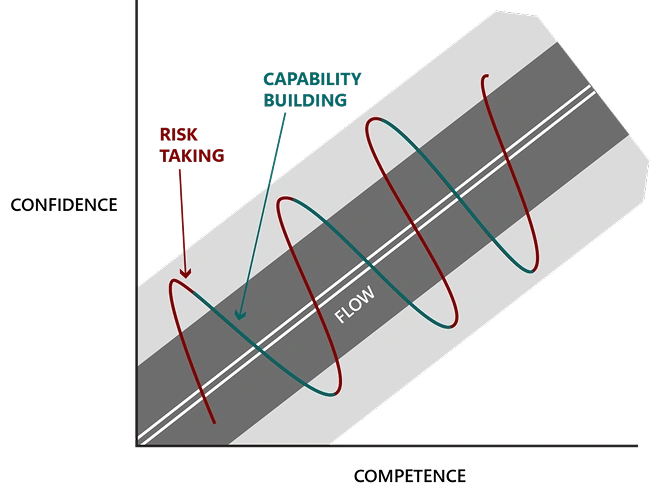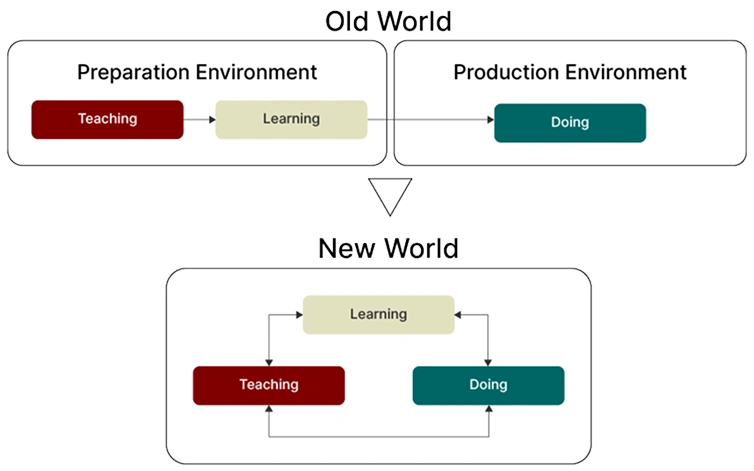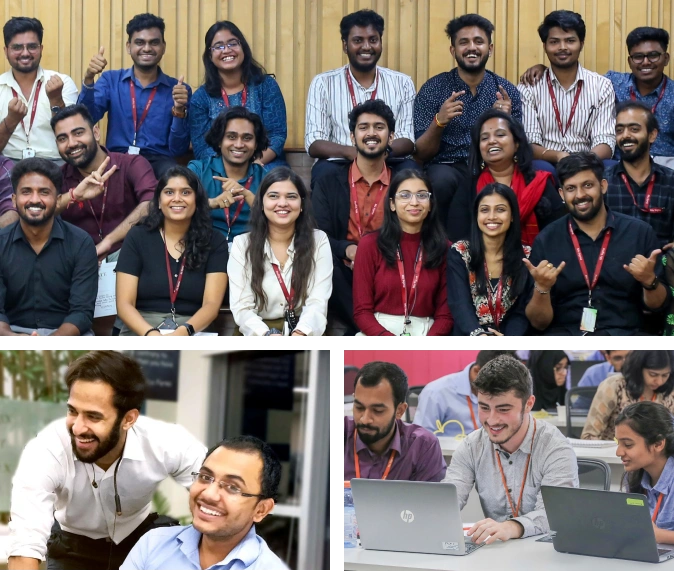µσ as a University
Graduates are Not Well Equipped
Today’s education system, which hinges on structured, classroom-based learning, predefined syllabi, and tests focused on assessing students’ recall ability, is not consistently preparing students for problem-solving in the real world.
A look at professions such as medicine, law, and accounting uncovers the insight that students need access to the real-world problem space, just as medical students receive access to a hospital.
Approaching problem solving holistically requires an interdisciplinary perspective of art and science. Access to real-world problems gives students a hands-on environment for outcome-based problem-solving that meets industry expectations and fills gaps that internships or industry training often miss.

Access to real world problems is the only way to provide students an environment where they can experience outcome-based problem solving that meets industry expectations.
The gap between what the education system delivers and market demands:
A World of Uncertainty Demands Optionality
In today’s fast-changing world, uncertainty is ubiquitous and increasing. New problems emerge faster than solutions. The total pool of knowledge is growing exponentially as is the pace of new technologies entering the market. The capability required (Cᵣ) is rising exponentially, while the capability produced (Cₚ) struggles to keep up-widening the gap and creating urgency for models rooted in exploration and optionality, not just execution.
Despite the vast availability of information, an individual’s relative knowledge quotient starts to decline. Why? Because static curriculums quickly become outdated, leaving learners with knowledge that is no longer relevant to real-world challenges.
This growing gap demands a new approach-one that prioritizes adaptability, critical thinking, and problem-solving. To thrive in an era of rapid change, individuals need the ability to navigate uncertainty, connect the dots between disciplines, and continuously evolve their skillsets.

At Mu Sigma, we see the modern talent challenge as a three-part problem:
Explore
Create multiple options through experimentation and curiosity

Execute
Choose and pursue promising paths with discipline and persistence

Exploit
Convert learnings into scalable, sustainable value
The gap between what universities offer for learning and what businesses want is what we're solving for. Our goal isn't just to train workers-it's to cultivate value creators: individuals who can explore new possibilities, execute with precision, and exploit opportunities to drive real impact. The way forward is for education to be delivered jointly by an industry-academic collaboration to create future-ready students.
Introducing the First Principles Thinker
First Principles Thinkers have a knack for combining competence in one area with the confidence to learn and explore other areas to build capabilities and take risks.

They are unique individuals who can:
- Work across the organization with great efficiency
- Be highly collaborative
- Connect the dots and ask better questions
Such thinkers believe in creative destruction and are capable of breaking down a problem into fundamental questions to build solutions from that point. We foster this mindset by creating an environment that challenges conventions, encourages curiosity, and rewards bold problem-solving.

We believe that the future of problem solving is going to be people who are going to be a combination of poets, philosophers and programmers.

At Mu Sigma, we expose our people to the Real-World Problem Space, where problems no longer arrive neatly packaged, but are ambiguous, interdisciplinary, and context specific.
The problems of today demand a new kind of problem solving: one that isn’t limited by domain expertise or past playbooks but grounded in first principles thinking that reconstructs solutions from the ground up.
In this environment, our learners develop three core identities based on first principles thinking:
-
 Poets, who draw insights from the arts, humanities, and history
Poets, who draw insights from the arts, humanities, and history -
 Philosophers, who apply thinking from psychology, behavioral economics, and design theory
Philosophers, who apply thinking from psychology, behavioral economics, and design theory -
 Programmers, who harness mathematics, statistics, AI, and machine learning to drive outcomes
Programmers, who harness mathematics, statistics, AI, and machine learning to drive outcomes

Apprentice-based Education
Mu Sigma is on a mission to provide a multidisciplinary education and equip students with an exploration mindset, which is the reason behind our unique program, µσ as a University.
Unlike traditional education methods based on teacher-led instruction, at the heart of Mu Sigma is a unique andragogy-a system of adult learning built on the Learning-Doing-Teaching loop.
Our learning model is apprentice-based, rooted in real-world exposure and built for continuous evolution:

Guided
Foundational knowledge through classroom sessions and collaborative workshops

Problem-Based
Students live the full journey of problem solving-from framing to design, execution, and iteration

Experiential
Learning directly from practitioners and mentors by working on actual business problems
The Results
Over the years, 18,000+ decision scientists have come through our program, building capability in real time and in real markets. Today, Mu Sigma is one of the most fertile training grounds for aspiring decision scientists.
Those who earned their stripes at Mu Sigma evolve continuously, they build comfort with discomfort. And they carry forward the DNA of a Mu Sigma mindset into the world’s top companies.
Getting into Mu Sigma is highly competitive; only 3% of applicants are selected. Those who make it gain a unique opportunity to learn, teach, and collaborate with leading global brands. This hands-on experience sets them apart and opens doors to limitless possibilities.


What Does All This Mean?
We build talent, we don’t buy it. We believe the future of decision sciences is the skills of the poet, the philosopher, the programmer.
At Mu Sigma, we’re on a mission to reimagine what it means to build talent-not just train them.
Our goal is to help our people embrace the Sigma-the unknown, the chaotic, the nonlinear-and become better questioners, faster learners, and deeper thinkers.
And it changes the way they think-forever.

The firm's name is derived from the statistical terms "Mu" and "Sigma," which symbolize a
probability distribution's mean and standard deviation, respectively.


